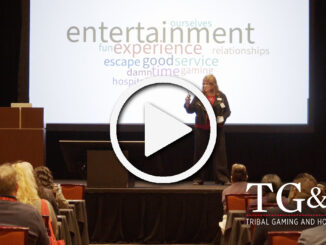Right now, my husband has a mild case of Covid and is holed up downstairs. It’s good digs. He’s got spacious room, TV, a cozy bed, microwave, fridge, his own bathroom, and meal delivery. We FaceTime him throughout the day. There are lots of Zoom dates with friends and colleagues. Yet, he’s miserable. He’s a pretty intense extrovert with an incurable case of FOMO. Being away from people is a punishment beyond description. He’s climbing the walls and I fear he may try to start conversations with backyard wildlife, just to get some company.
Now, I’m not asking for a bout of Covid but if you told me I could lock myself in a room, watch TV, read books, get food delivery and no one would bother me for days on end I would be asking you how soon I could sign up. I love people but desperately have to find alone time in the day to recharge and reset. Days of solitude are a treat.
Situations impact people differently. What feels like a gift to one is a curse to another. It is influenced by our natural dispositions, history, and context. Yet, time and again we bring judgement to our reactions and feelings. This judgement blurs our ability to use our experiences to understand ourselves and others better. We get stuck in a loop of repression that prevents us from making good decisions and healing.
Reactions and Feelings – Are We Our Own Worst Critic?
Every day I hear clients say, “It’s stupid that I’m crying about this. I shouldn’t feel this way. I enjoy this but it makes no sense in my life.” People often automatically discount their experiences when they aren’t flattering either to themselves or others. Instead of trying to understand why they are reacting there is an immediate vilifying of their honest response. When we reach deep for understanding we can then seek a viable solution and a richer understanding of ourselves and our connection to others.
Often a client will be frustrated and vent about their colleague. For example, I’ll hear that the person is late to meetings, can’t remember to hand in paperwork on time and is generally flakey when it comes to deadlines. Yet, after grousing about this for a few minutes the client will step back and say something about how he shouldn’t be saying that because his colleague does have really good ideas and delivers exceptional products. Why can’t both be true? One can be both terrible at time management and good at creating.
The truth is that we are all multi-faceted and by honoring the entire person we are equipped to interact with them and ourselves best. We get stuck in the idea that if a trait or experience isn’t resume-worthy it is a bad gossip session to mention it. Instead, if we fully recognize the reality of the person and our reaction to that, without judgement, we would be in a better place to make decisions about our needs that get the best results. If I acknowledge my colleague has time management challenges, this allows me to make appropriate choices. I can address it directly or manage around it but by being honest in the assessment and how that impacts me I can move into appropriate action.
Easy for You Doesn’t Mean Easy for Others
Sometimes situations simply rub us the wrong way or maybe a challenge has an inexplicably easy solution for you. That is all unique to you. Instead of sanitizing the experience through the lens of what seems appropriate, pause and seek to understand how it is impacting specifically, uniquely you.
My mother went to a well-reviewed play with a friend that gushed about the performance but the play left her sleepless and triggered by childhood trauma. I once visited a therapist that was so inept I felt validated in my own work. I have felt relieved by the death of suffering family members and blindsided with grief by the loss of others. You see, it isn’t the circumstances that matter so much as the personal impact experienced. Become deeply curious to understand your reaction and leave judgement of what you imagine it should have been.
Remember we are an amalgamation. What causes you pain, joy, frustration, or grief is completely individual. Our responses and needs are built on a lifetime of experiences and our natural dispositions. Since it is so individual, it is impossible and irresponsible to even suggest that any experience or reaction should fit a particular mold. Discounting our experiences or suggesting that we are having a “wrong” experience limits our answers. If I don’t honor my need for solitude then I never get fully recharged. My husband’s need for socializing is just as real and valid. If we reject our experience or try to twist our perceptions to fit a standard then we don’t get to learn about what we need and how we can most constructively meet that need. The need or the experience is never resolved until it is honestly addressed. It will just continue to surface. Everyone’s reaction, even to the same event, is as unique as the individual. By easing off the expectation of what it should be, you’ll have clarity to make a clean decision that makes real sense for your reality.




